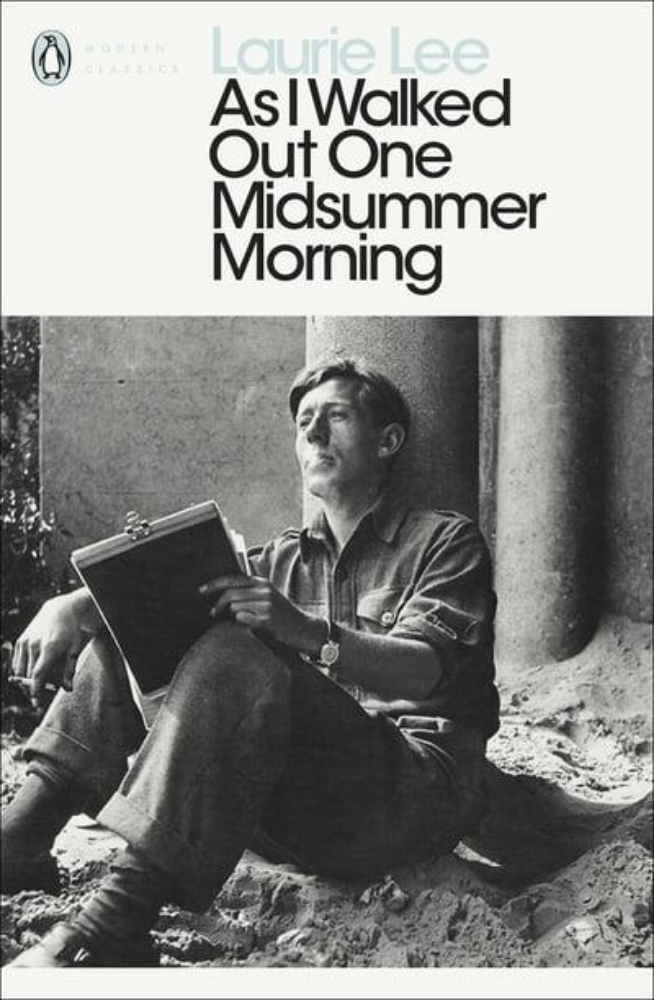I’ve recently been reading Laurie Lee’s account of his travelling through England and Spain, during the 1930s.
Reading the book reminded me that British society has historically betrayed and neglected ex-service men. Furthermore the British media and government by foregrounding all the wonderful concrete monuments that get erected to service men and its plethora of memorial events and occasions, serve to hide this betrayal and neglect from the shared consciousness of the nation. Consequently the suffering of ex service-men and women becomes a thing of shame (they are known as ‘tramps’ and not ‘heroes’) and a private problem, if not torture, rather than a social problem.
In particular I was shocked and incredibly saddened to hear about the tramps of the 1920s and 30s in Britain, many of whom were ex service-men during World War I, who Laurie Lee accounted for in his walking in the south of England from Slad to Southampton and then on to London. Robert MacFarlane, who wrote an introduction to the latest edition of Lee’s book explained:
The unhappy population of Britain’s roads boomed in the years before Lee left Slad. Many of the men who survived the First World War had returned to find no settled employment and no home. Life on foot was the only option available to them, and in the two decades after 1918, plumes of smoke rose from copses and spinneys as the woods of England filled with these shaken-out casualties of war – men who slept out and lived rough, begging as they went and working where they could. Their numbers grew further when the economic crash of the 1930s left millions jobless across Europe and America.
Arguably, little has changed over the years. British servicemen and women are lauded by politicians and the British public, but their everyday needs, many of which arise as the consequence of going to war, are neglected, forgotten about and brushed under the carpet.
The British charity, Help for Heroes, whose fundraisers can often be seen shaking buckets up and down the country, in stations and on high streets, state (my emphasis):
At Help for Heroes, we believe those who serve our country deserve support when they’re wounded.Every day, men and women have to leave their career in the Armed Forces as a result of physical or psychological wounds; their lives changed forever. We help them, and those still serving, to recover and get on with their lives. We give them physical, psychological, financial and welfare support for as long as they need it. We also support their families, because they too can be affected by their loved one’s wounds. We receive almost no funding from the Government, which means we rely on the spirit and generosity of the great British public, our partners and volunteers to keep going. Rest assured, we continue to put pressure on the Government to do more. So far, with your help, we’ve supported more than 25,000 people, but we know that many more still need us. We won’t stop until every wounded veteran gets the support they deserve.
I’m not a big fan of the name Help for Heroes because I don’t think that every single servicemen and service woman in the British Army has or will necessarily behave heroically (whatever that may mean). Neither do I think the jobs that the British Army are sometimes asked to do are necessarily heroic in their aims and values. Nevertheless I fully agree that if we are going to ask men and women to put their lives and well-being on the line in the interests of British people then the investment in the ongoing and after care received by the servicemen and the families should be ratcheted up, so that every serviceman has a care plan for their family that meets their needs.
Who, though, and what type of politics, in particular, will deliver that care? Traditionally, I would imagine, though I might be wrong, right wing voters and governments are, at least rhetorically more vocal in their support for the armed services. In return I would imagine that servicemen, generally speaking, are more supportive of right wing parties and governments, because they tend to be more nationalist and vocal in their support. However the paradox is that, generally speaking right wing parties are also more likely to argue for less tax and social spending, which reduces the pot available for social care, out of which the care for servicemen will come.
Servicemen and women have to endure tough conditions both in training and during warfare. Enticed into the armed services with promises of honour, development and aftercare, but then damaged and neglected afterwards, servicemen, sadly, can be considered just as much victims as heroes.
